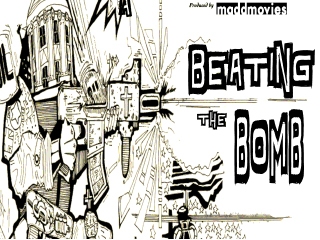Beating The Bomb
 "Humanity is engaged in a race against time, because its moral advance hasn't kept up with the advance in technology." This is the story of the biggest weapons of mass destruction ever created. It is about the people who use them, but more importantly, it is about the people who fight them.
"Humanity is engaged in a race against time, because its moral advance hasn't kept up with the advance in technology." This is the story of the biggest weapons of mass destruction ever created. It is about the people who use them, but more importantly, it is about the people who fight them.
"To sit around like a lemming and do nothing is, to me, to deny your humanity." Over 50 years the British peace movement has protested against the political backdrop of the atomic age. Women came in their thousands to Greenham Common to protest against nuclear weapons placed there. Sitting on the ground singing, the police drag them by their armpits one by one and shove them out the way. These women, undeterred, continue to sing: "We are women, we say no to the bomb."
"We often don't know the impact we have had on these things," a peace activist states frankly. Campaigners have had impressive tangible effects on the international arms trade, but more often than not their efforts go unnoticed or are simply ignored. Yet despite indifference or hostility campaigners are not discouraged and are driven on by the hope of a better world. "Another world might not be possible, but unless we try we are certain to fail." With 100,000 strong demonstrations demanding a rethink of Britain's nuclear weapons policy, they fight harder: "Direct action is a way of confronting power in such a way that it makes you feel empowered."
Framing nuclear weapons within the wider context of global justice this empowering doc pays tribute to peace campaigners throughout history. Military and governmental explanations appear nonsensical against the backdrop of dispute from the ground. "With nuclear, chemical and biological weapons, you can destroy the human race". The response is quite simple: "The idea that nuclear weapons brings security is unbelievably absurd".
LEARN MORE.
WATCH MORE.
JOIN THE DISCUSSION.
FULL SYNOPSIS
WATCH MORE.
JOIN THE DISCUSSION.
